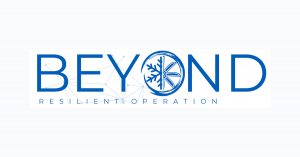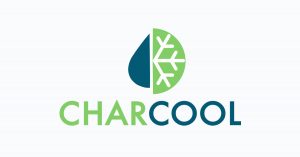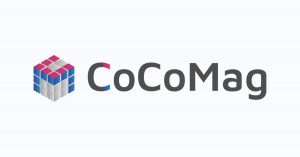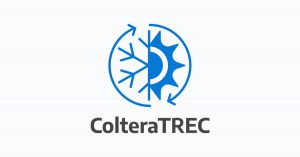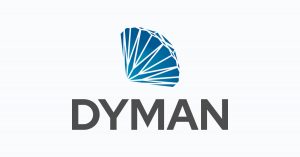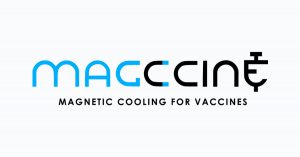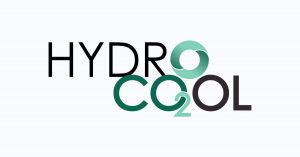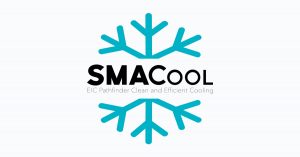EIC Portfolio

Frostbit project is part of the Clean and efficient cooling EIC Pathfinder Portfolio
Projects
BEYOND
BEYOND – method for smart and affordaB le E valuation of simultaneous faults in heating and cooling sY stems based ON compresseD vapor technology – is a pioneering project under the European Innovation Council framework. It introduces a cutting-edge, knowledge-driven method for detecting, diagnosing, and evaluating soft faults in heating and cooling systems powered by vapor compression technology. Our solution targets two critical challenges – refrigerant leakage and heat exchanger fouling – delivering effective management for more efficient and sustainable systems.
CharCool
CharCool is an innovative and sustainable heat-driven cooling system, where the excess of renewable energy or waste heat is stored in a modular thermochemical energy storage system that allows for seasonal storage. CharCool challenges the current vision of cooling industry by proposing a system that is highly flexible and reliable, thanks to its coupling with a high-energy density (200 kWh/m3) and inexpensive mid-/long-term thermochemical material. The CharCool chiller is supplied by a new interchangeable (thus rechargeable) modular thermopile made of biochar obtained from low-cost agricultural by-products, impregnated with environmentally friendly and easily available inorganic salts. The chiller operates with water as the refrigerant, offering a natural and safe alternative to the current electricity-driven and environmentally harmful cooling solutions. CharCool runs on waste heat or renewable energy sources within a temperature range of 60-150 °C, offering the advantage of decoupling the refrigeration system from the electricity grid, thus increasing the penetration of renewable energy.
CoCoMag
The CoCoMag project aims to address the challenge of a sustainable future by focusing on two primary applications: e-mobility and magnetic refrigeration. Our innovative approach involves the new design concept for magnetic materials using the compositionally complex alloys (CCA) approach, in our case based on hexagonal Fe2P and MM’X type compounds. These CCA-designed alloys will ultimately eliminate or minimize the use of critical elements, providing a more sustainable solution for both permanent magnet and magnetocaloric materials. By leveraging the extensive compositional flexibility of CCAs, we can go beyond traditional metal alloying methods that have been used ever since the Bronze Age. The CCA approach allows us to address both the primary magnetic properties and equally important secondary engineering properties such as mechanical and thermal stability. Our methodology integrates theoretical predictions, experimental validation, and coupled machine learning to accelerate the alloy design process.
COOLPOL
Electrocaloric cooling is based on a reversible temperature variation in specific materials as a result of electrical field variation. LIST recently showed that a few grams of electrocaloric ceramics can generate 20.9 K temperature span and 4 W cooling power. This project investigates cooling with electrocaloric polymers, which have even higher cooling potential. Arkema, world leader in electroactive polymers, will investigate electrocaloric polymers able to reach over 5K temperature variation. KEMET, an European industrial partner, will prepare thousands of multilayer capacitors based on optimized electrocaloric polymers. The USTUTT recently demonstrated the most efficient charge recovery circuit and will build electronics to increase the system efficiency. Finally, thanks to its extensive experience in making electrocaloric coolers, LIST will assemble the multilayers and the electronic modules in a proof-of-concept aiming at reaching a cooling power of 1 kW and a system efficiency of 60%. If successful, this project will revolutionize cooling.
ColteraTREC
ColteraTREC is a ground-breaking, patented technology which promises to revolutionize cooling through best-in-class TREC electrolytes and multiple other innovations, enabling extremely efficient thermodynamics and high-power densities. ColteraTREC heat pumps radically change the way cooling is accomplished by eliminating noxious refrigerants and achieving energy efficiencies close to the theoretical maximum.
DYMAN
DYMAN targets the development of a completely new design of adsorption chillers that are dynamically managed in data centres and moves forward with a dynamic management of self-cooled HPC data centres. Additionally, the project aims to develop at second core concept to further develop an existing two-phase cooling system, for high-performance computing servers to handle thermal loads more efficiently from next-generation processors. DYMAN proposes revolutionary technological advances focused on the use and management of clean and efficient cooling in data centers. The previously unproven technology that will be developed in DYMAN will enable the advancement and positioning of European cooling.
MAGCCINE
Every year 1.5 million lives are lost worldwide due to insufficient access to vaccination while, paradoxically, over 50% of all produced vaccines are wasted, mostly due to ineffective temperature control during storage/transportation. The Magccine project aims to revolutionize the vaccine cold chain by developing a clean and efficient solid state magnetic refrigerator based on a novel approach: the rotating magnetocaloric effect (RMCE). By reducing the amount of permanent magnets required, the RMCE is expected to enable drastic cuts in the device’s production cost, volume and weight, while enhancing efficiency without the use of any high GWP or hazardous refrigerant gases, highlighting its role as a key enabling technology for tackling vaccine cold chain challenges. Magccine´s goal is to develop and optimize a fully operational prototype for vaccine refrigeration in the 2-8 ºC temperature range, which is required by most vaccines.
LEMON
The aim is to develop a scalable, helium-3-free cryogenic cooling technology capable of reaching milli-Kelvin temperatures. By pushing the boundaries of continuous adiabatic demagnetization cooling (cADR), the project will meet the growing need for cooling in quantum technology, in particular in quantum computing.
HYDROCOOL
The HYDROCOOL project will develop and test a novel CO₂ hydraulic cooling cycle concept to deliver cooling at any environmental conditions, meaning that it can work above the CO₂ critical temperature (>31ºC) via a reversible cycle capable of operating in both subcritical and transcritical conditions.
SMACool
The main objective of the SMACool project is to develop a functional air conditioning device for residential buildings, based on the emerging technology of elastocalorics, which uses shape memory alloys as solid-state refrigerants for efficient and sustainable cold generation. Elastocalorics is an innovative, disruptive cooling and heating technology with the potential of reaching outstanding energy efficiency and zero global warming potential.

